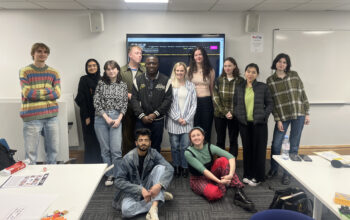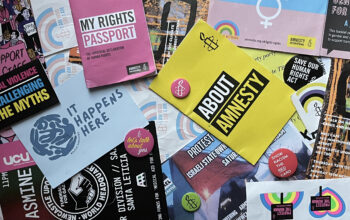The refugee crisis in the UK: What you need to know
Like many countries, the United Kingdom is grappling with the impacts of the ongoing refugee crisis. What is the situation and why is it important?
As millions of people leave their home countries due to persecution, violence, armed conflicts, environmental disasters and human rights violations, the refugee crisis has become a global phenomenon.
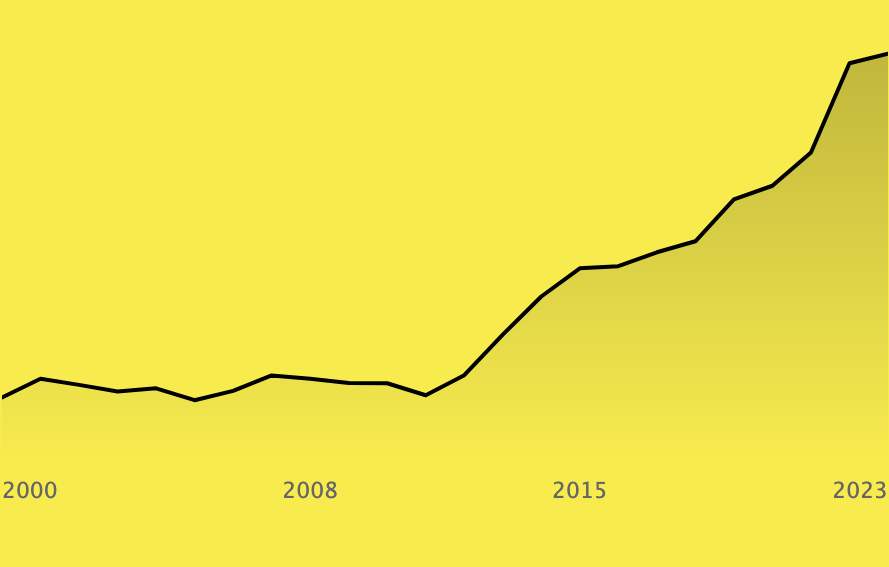
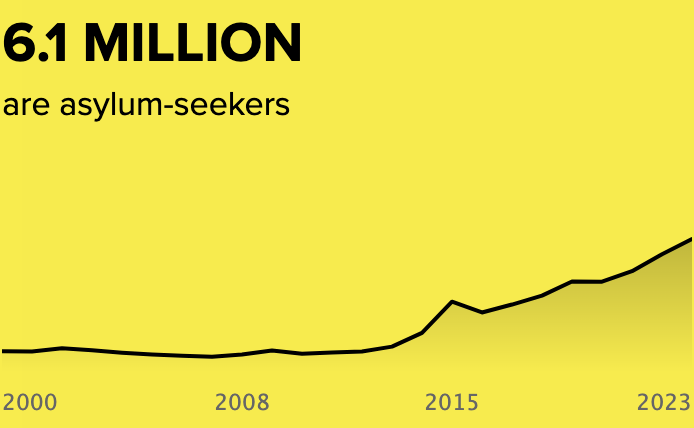
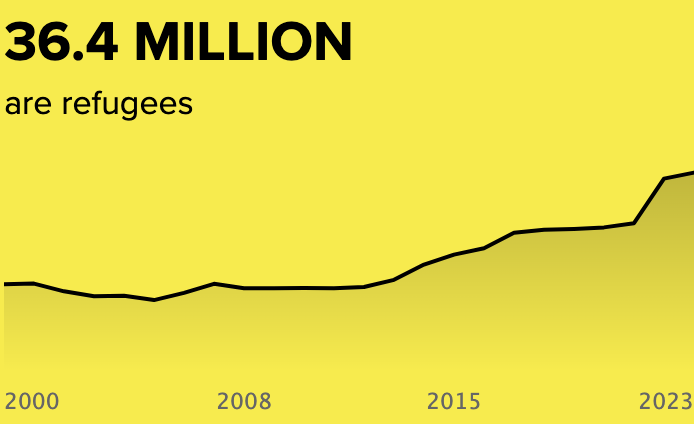
As of mid-2023, the number of forcibly displaced people worldwide stood at 110 million, with 36.4 million being refugees and 6.1 million being asylum seekers.
The United Kingdom has strongly felt the impact of this refugee crisis, sparking debates revolving around the issue. Here is what you need to know about the situation.
Defining Key Terms
Who is a forcibly displaced person?
According to UN, a forcibly displaced person is someone ‘forced to move, within or across borders as a result of persecution, armed conflict, other situations of violence, or human rights violations’.
It is a term encompassing both refugees and asylum seekers, along with others in need of international protection.
While the terms ‘asylum seeker’ and ‘refugee’ are often used interchangeably, they are not one and the same.
Who is a refugee?
A refugee is someone forced to flee their own country and seek safety in another. They cannot return because of ‘feared persecution as a result of who they are, what they believe in or say, or because of armed conflict, violence or serious public disorder.’ (UNHCR)
As a result, refugees are entitled to protection under international law.
In the UK, one must apply for asylum before being legally recognised as a refugee and gaining the rights associated with this status.
Who is an asylum seeker?
An asylum seeker is a potential refugee.
It is someone seeking international protection who intends to apply for asylum or has already done so and is waiting for a decision to be made on their claim. Anyone has the right to seek asylum.
Asylum seekers do not have the same rights as refugees and in the UK, they are for example not permitted to work. While awaiting a decision, they must rely on the government for housing and financial support.
“Not all asylum-seekers will be found to be refugees, but all refugees were once asylum-seekers.”
– UNHCR
The United Kingdom
The refugee crisis in the UK remains to be a pressing issue and in recent years, the country has experienced a surge in people seeking asylum within its borders.
This increase is due to the current happenings in the world, most notably due to the ongoing conflicts. This includes the Russian invasion of Ukraine and the Israel-Hamas war.
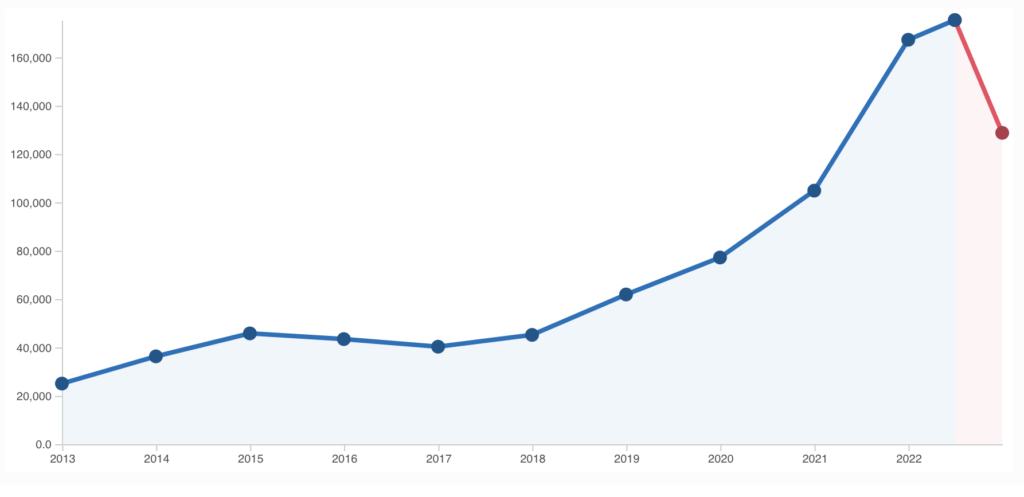
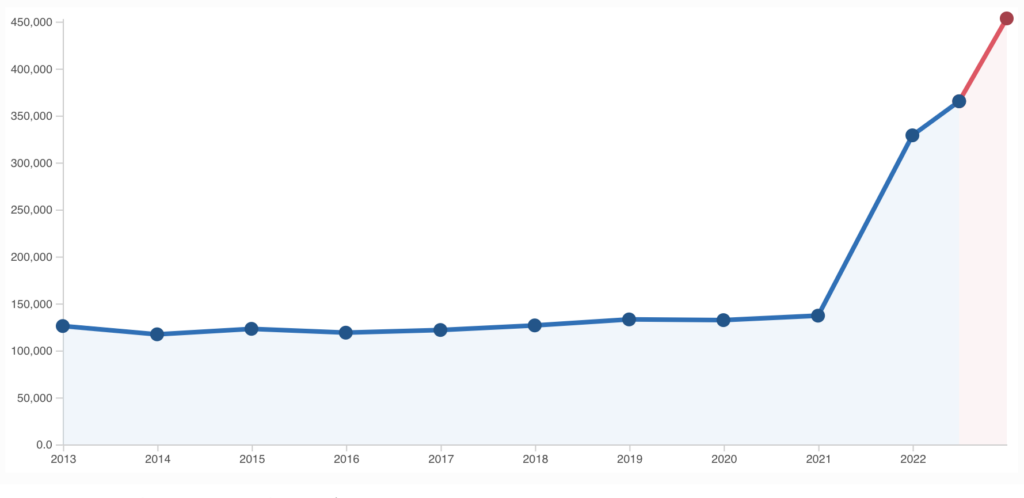
As of mid-2023, there were over 365,300 refugees and 175,400 asylum seekers in the UK. The estimates indicate that by the end of 2023, the number of refugees has risen to 453,400 while the number of asylum seekers has decreased to 128,800.
Despite receiving fewer asylum applications than many EU countries, the UK still struggles, facing issues that further complicate the situation for asylum seekers and refugees. This includes a backlog of asylum cases, leading to longer waiting times for the outcomes.
The asylum process
In the UK, obtaining refugee status is often a complicated and lengthy process. It can take from months to years and not all claims are successful.
If the claim is refused, the asylum seeker has the right to appeal against the decision. If unsuccessful, they must leave the UK.
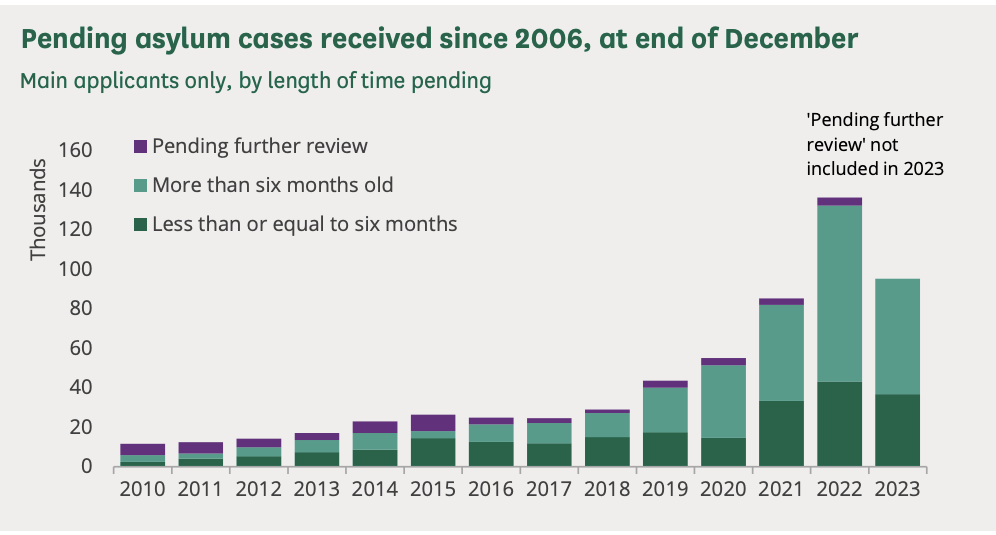
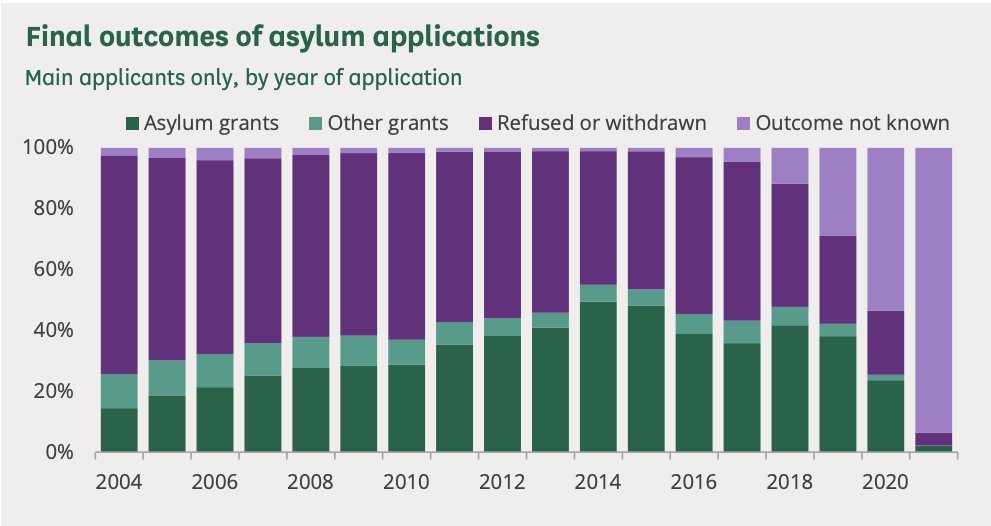
“After they come to the UK, they are interviewed by the Home Office and then directed to different parts of the country.”
– Peter Noble, Chief Executive of West End Refugee Service
Asylum seekers are unable to choose where they will live and while awaiting a decision, they have to rely on the accommodation and support provided by the government.
Currently, asylum seekers get £49.18 weekly, the equivalent of approximately £7 a day.
“People seeking sanctuary can’t work when they get here. If they haven’t had a decision on their application for 12 months, they can apply for a permit to work, but that’s only in certain fields.”
– Alison Cheesman, Community Events and Fundraising Officer at West End Refugee Servic
They face numerous challenges during the asylum process, including financial difficulties, language barriers and adapting to a completely new environment and culture while essentially starting their lives from scratch.
Even upon obtaining refugee status, these challenges persist and new ones arise. 28 days after their biometric residence permit has been issued, refugees usually need to find new housing and are cut off from the financial support provided by the government. This can lead to homelessness and destitution.
There are many charities across the UK that support asylum seekers and refugees, but even they are currently facing difficulties.
“With the economic crisis, Ukraine, the fuel pressures, the cost-of-living crisis and inflation, councils are under significant financial pressures in most parts of the UK, so the local authorities are reducing the financial support for refugees and asylum seekers”
– Peter Noble, Chief Executive of West End Refugee Service
All these issues highlight the pressing need for effective solutions to the refugee crisis in the UK.


